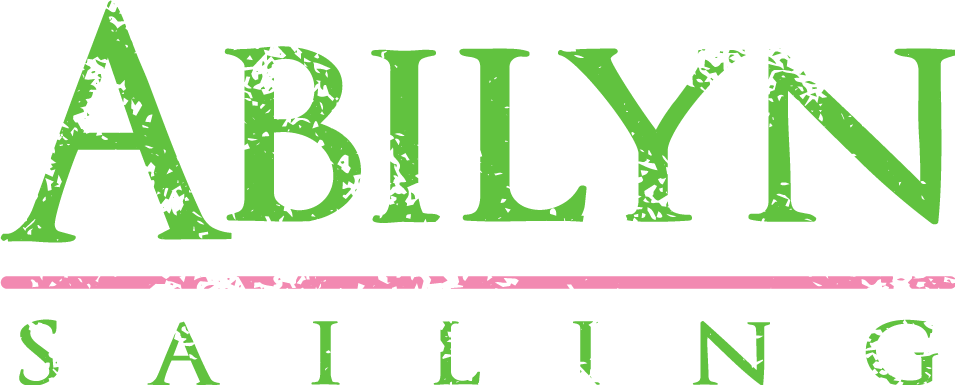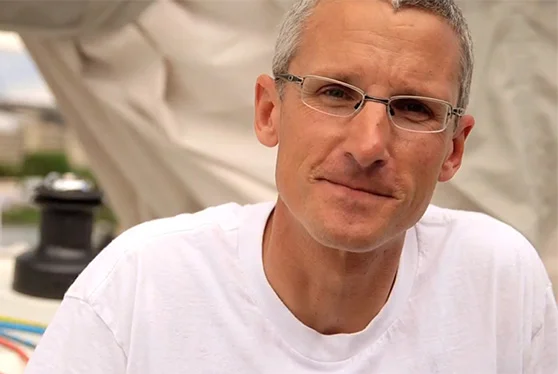Spring is in the air here in the northeast, which means that bottoms are being burnished and boats are being splashed, and also that the start of The Atlantic Cup is quickly approaching. The Atlantic Cup presented by 11th Hour Racing has developed into the premier event in the United States for short-handed sailors, combining offshore, double-handed distance racing with in-shore, crewed 'round-the-buoy racing in powerful Class 40 ocean machines.
So we got in touch with local sailor Chad Corning, who will be racing in the upcoming Atlantic Cup aboard Pleiad Racing. Chad has had a diverse sailing career, having amassed around 30,000 offshore racing miles, and having competed (and excelled) at the highest level of one-design racing. He's raced in 10 Newport-Bermuda Races, three Pineapple Cups, three Marblehead to Halifax Ocean Races, and two Chicago-Macs to name a few. He served as the build and program manager for the Ker 43 Ptarmigan. He's served as program manager for current World Champion in the highly competitive Melges 32 one-design class, Argo Racing. Chad was part of the Argo race crew that won consecutive Melges 32 US National Championships in 2011 and 2012, and won the Viper 640 US National Championship in 2013.
I worked with Chad as part of the 2013 NYYC Invitational Cup when I sailed aboard the Nautor Club Swan 42 Quintessence with Team Larchmont (2nd overall). Chad's a great project manager, possesses a wealth of knowledge, and has gladly offered to serve as a resource for us as we build for the Bermuda 1-2.
Despite being otherwise engaged right now at the 2014 Les Voiles de St. Barth, Professor Corning found time to give us his Offshore Racing 101 class (below). The exam will be held on June 5, 2015 in the North Atlantic room.
Chad Corning Profile
Nationality - USA
Occupation - project manager, business owner, entrepreneur
Disciplines - crewed and short-handed ocean racing, 'round-the-buoy racing, Class 40, Melges 32, Viper 640
Teams - Pleiad Racing, Argo Racing
Notable Results
2013 Viper 640 North American Champion, Argo
2012 Northern Ocean Racing Trophy Winner, Ptarmigan
2011 & 2012 Melges 32 US National Champion, Argo
Offshore Racing 101 presented by Chad Corning
Know your team.
The best teams know each other's strengths and weaknesses. Every hairy, middle-of-thenight sail change becomes easier when you know and trust the guys backing you up. Spending time together on and off the yacht is key before you tackle a longer race.
Rest.
Easier said than done in fresh conditions but every hour of down time you get will pay dividends in the later stages of the race. Try hard to get over the excitement of the first 12 hours and get into a routine quickly. Never get into your bunk wet. If you need to standby in your kit, do it on the floor (which obviously cannot be done in a Mini).
Push, but know when to say when.
It's amazing what you can get used to. In the 2012 Newport-Bermuda Race, we sailed in the red zone quite a bit. It was a bit hairy at first but it soon became comfortable. On a modern race boat, going fast reduces load on the boat and gives you greater control. The caveat here is to know your limitations and back off if the team becomes sick or fatigued.
Eat and drink.
If you feel thirsty offshore, you're already behind. In rough conditions, your body is going to work hard just to balance itself, mush less do the physical work of helming, trimming and changing sails. Plan on doubling your normal calorie load and consuming at least three liters of fluid every day. Being hydrated and having a full tank will help ward off seasickness and fatigue. If you are running freeze dried food, make sure you add a tablespoon of olive oil to every serving – what goes in must come out.
Be one with your sails.
Everyone on the yacht should have an intimate knowledge of the sail inventory and its crossovers. The crossover chart is king offshore. Make sure this is a very refined document before you head offshore.
Moding.
Be fluid in your strategic thinking – often the fastest point between two points is not a straight line. Cf. #1 - Benoit Marie ("The shortest route wins 90% of the time."). Modern race boats go so fast that getting a spinnaker or code sail on will trump sailing through adverse current.
Routing.
Routing software is getting very good. Keep your tactical software well fed with current GRIB data and lean on it heavily to figure out where you are going. It's not foolproof, however, and you should always have a blended strategy that uses your intuition and experience along with the solution presented by the tactical software.
Safety.
Know all of your safety kit inside and out. Test your integrated harness/PFD twice a year. Know where everything is a how to use it. If it goes bad, you will have limited time to ditch. So this is life and death. Make sure you get to an ISAF or US Sailing safety at sea seminar. If you are short-handed, make sure you and your teammate take an advanced wilderness first-aid course.
Become a jack of all trades.
Become intimate with all the systems of the yacht. Offshore sailing is all about identifying small problems and taking care of them. Soak up the knowledge on your team and know enough to be dangerous especially when it comes to winches, running rigging and the yacht's steering systems.
Take care of yourself.
Going offshore is no reason to live like an animal. Technical clothing and good foulies are going to keep you comfortable. Make sure you keep yourself clean with baby wipes and use Gold Bond or something similar to keep salt water sores and rail bum at bay.
The Abilyn Racing Ocean Racer Series collects tips and experiences from some of the world's most accomplished ocean racers. Our goal is to improve our own sailing, as well as to show other sailors--both in the United States and elsewhere--that if you have strong ambitions to race offshore, there is a network out there of knowledge and guidance. Just ask!


